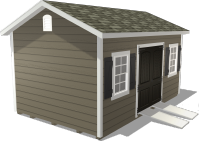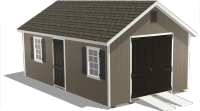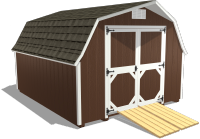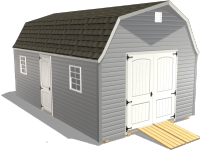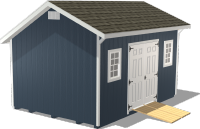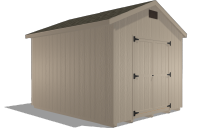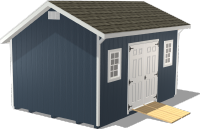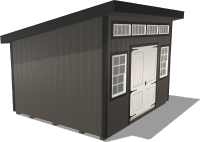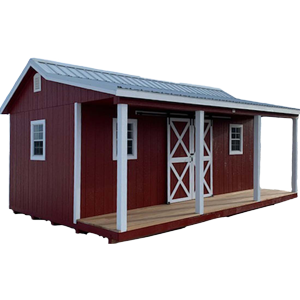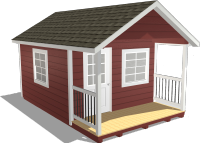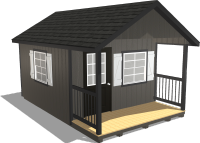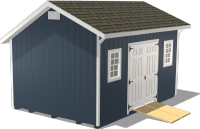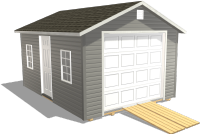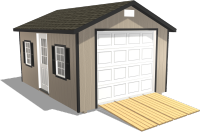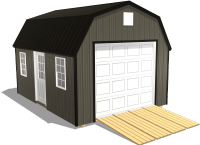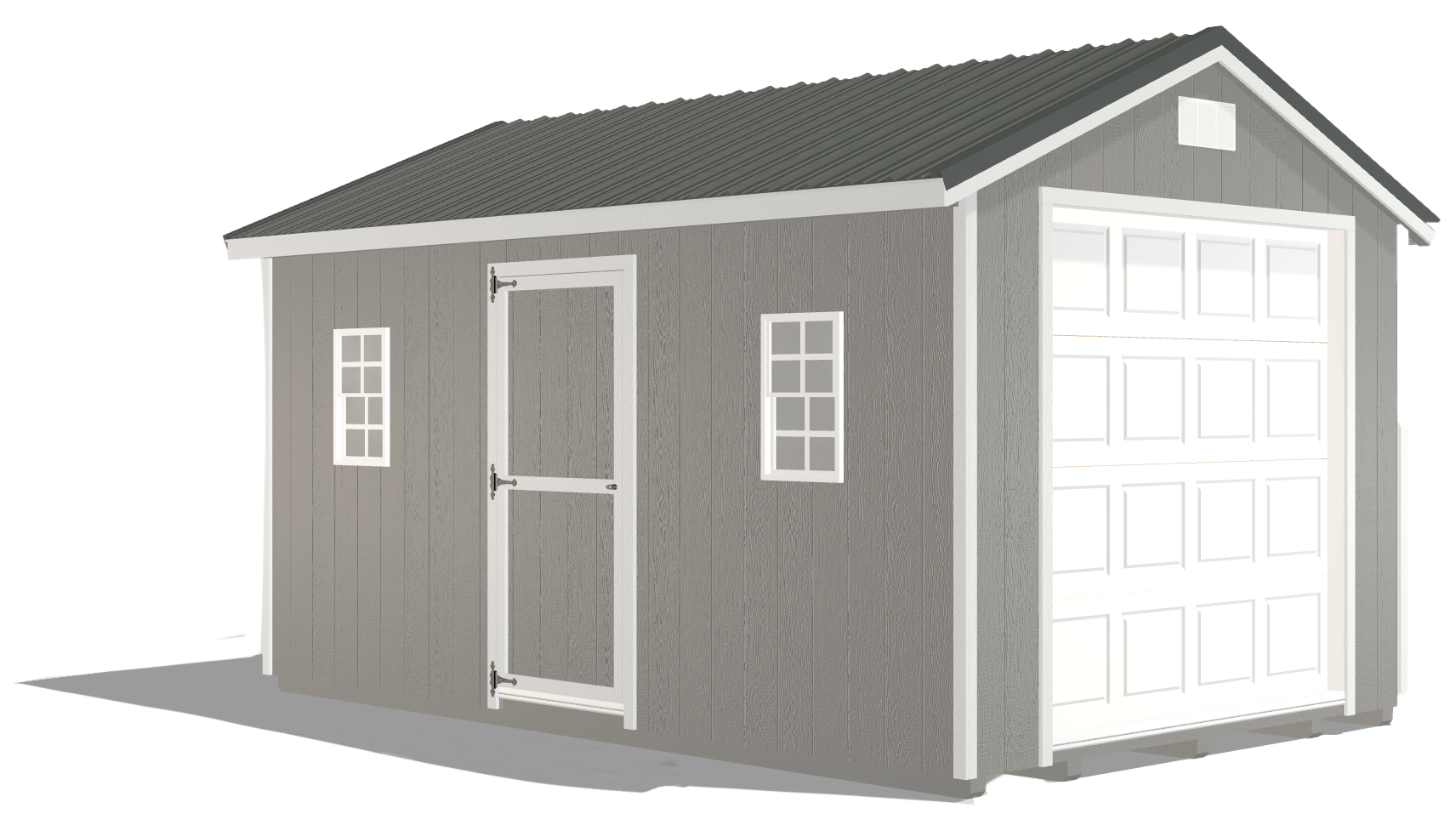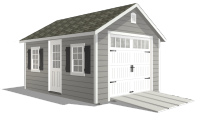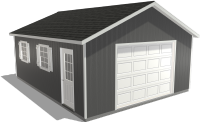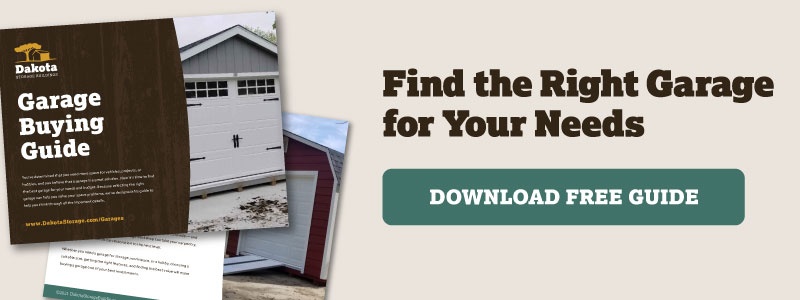How To Pick the Best Garage Flooring for Long-Term Use
by Dakota Storage Buildings, on October 13, 2025

If you’re considering investing in a detached garage, flooring shouldn’t be an afterthought. It can affect the structure’s durability, safety, and day-to-day usability. Whether you’re parking vehicles, need storage ideas for garages, or turning the space into a workshop or gym, the best garage flooring choice can make a world of difference.
If your garage floor can’t handle heavy use, extreme temperatures, or moisture exposure, it’s more likely to crack, stain, and wear down over time. That leads to more maintenance, less functionality, and a lot of missed potential for the space you’ve invested in.
When you choose a quality garage floor, it can help protect your structure, simplify upkeep, and improve how you use the space for years.
Garage Flooring 101: What to Consider Before You Choose
Flooring can feel like an afterthought, but it plays a major role in how well your space functions over time. The right floor can make your garage safer, more durable, and easier to maintain, while the wrong choice may lead to costly issues down the road, like cracks, moisture damage, or constant cleanup.
Before you commit to a flooring material, take a step back and think about how you plan to use your garage, not just now, but in the future. Your flooring needs may differ drastically depending on whether you're parking cars, working on DIY projects, or storing seasonal gear.
Start by evaluating these core features:
- Durability: Will the floor hold up to vehicles, tools, and temperature changes without cracking or wearing down?
- Moisture Resistance: Is your area prone to humidity, rain, or snow? The wrong floor could warp or swell.
- Ease of Cleaning: Garages get messy. A low-maintenance surface will save time and headaches.
- Cost: What’s your budget, and how long do you plan to use the space?
In addition to these basics, don’t overlook these important factors:
- Climate: If you live in an area with harsh winters or high humidity, choose materials that resist swelling, freezing, and condensation.
- Use Case: Will you be using the garage primarily for car storage, as a workshop, home gym, or multi-purpose space? Different uses come with different wear-and-tear expectations.
- Installation Requirements: Some flooring types are DIY-friendly, while others need professional prep and installation to ensure long-term performance.
By thinking through how your garage will be used and what conditions it will face, you’ll be in a much better position to choose flooring that looks great and performs well in your specific environment.
Best Garage Flooring Options
Now that you’ve identified your priorities, the next step is to compare the best garage flooring types and find the best fit for your goals and budget. Each option has its own strengths and trade-offs. Whether you want to purchase a new prefab detached garage or upgrade an existing one, understanding your options will help you make a smarter, longer-lasting investment.
.jpg?width=900&height=450&name=Blog_BrownDetachedGarage_900x450%20(1).jpg)
Here’s a breakdown of five of the best garage flooring types, with pros and cons for each.
1. Sealed Concrete
A sealed concrete floor is one of the most common and affordable garage flooring choices. It adds a protective layer over the standard concrete slab, helping guard against minor spills and stains.
- Pros: Affordable, protects against staining and some moisture, low maintenance.
- Cons: Prone to cracking with temperature swings or heavy use; can be slippery when wet.
This option works well for basic vehicle storage or low-traffic areas, but may not meet your needs if you intend to use the space as a workshop or other high-impact use.
2. Epoxy Coating
Epoxy provides a sleek, polished finish and is popular among homeowners who want both visual appeal and resilience.
- Pros: Visually clean, highly durable, stain-resistant, and easy to clean.
- Cons: Requires extensive prep; can chip or peel if not applied properly; may need reapplication over time.
Epoxy is ideal if you’re using a garage as a workspace or showroom-style storage area, but applying the epoxy correctly is critical for long-term performance.
3. Rubber Mats or Tiles
Perfect for multipurpose spaces, rubber flooring is often used in garages that double as home gyms or hobby areas.
- Pros: Cushioned, great for workspaces or gym use; quick installation.
- Cons: Not suitable for heavy vehicle storage; may retain moisture underneath in humid climates.
Rubber flooring offers comfort and shock absorption, but is not designed to hold up under the weight of vehicles or heavy machinery.
4. Interlocking PVC Tiles
These modular tiles are a favorite for DIYers who want a customizable, low-commitment upgrade.
- Pros: Slip-resistant, customizable appearance, simple DIY installation.
- Cons: Can shift over time; moisture or debris may collect under the seams.
PVC tiles can be a great way to personalize your garage floor, but they require regular inspection to avoid hidden damage or mold growth.
5. Polyaspartic Garage Floor Coating
Considered a premium choice, polyaspartic garage floor coatings are known for their extreme durability and fast cure time.
- Pros: Extremely tough, UV-resistant, fast cure time, long lifespan.
- Cons: Higher upfront cost; typically requires professional installation.
If you’re looking for a long-term, low-maintenance solution that can handle heavy use, polyaspartic can be a smart investment.
Dakota’s Quality Garage Flooring Options
At Dakota, we offer premium flooring options as part of our detached garage builds that are designed to suit real-life use and long-term performance. Our materials are carefully selected to ensure they look nice and hold up under pressure, resist wear, and support a variety of storage ideas for garage and workspace needs.

Roseburg RigidCoat® Plywood Subflooring
This engineered panel is moisture-resistant and built to withstand construction stress and daily garage wear. It won’t swell or delaminate and provides a sturdy base for any garage function.
- Best For: Homeowners who want long-term performance and protection for basic storage ideas for garages or project spaces.
- Keep in Mind: It’s not decorative, but its practical benefits make it a smart structural choice.
This subfloor is a great foundation if you plan to add your own flooring later or just want a strong, no-frills base that won’t deteriorate under pressure. It’s an ideal solution for garages where function outweighs aesthetics.
Lux Guard Rubber Flooring
This high-performance, non-slip surface is ideal for homeowners using their garage as a gym, workshop, or hobby space. It provides shock absorption, resists stains, and can handle moderate moisture.
- Best For: Multi-use spaces where traction and comfort matter.
- Keep in Mind: May show wear under very heavy vehicle traffic.
Lux Guard makes your garage feel more like a finished, indoor space, so it’s perfect for hours of standing work, workouts, or messy projects. It also helps reduce noise and vibrations, making it a favorite for hobbyists and DIYers.
LP® ProStruct Flooring With SmartFinish
Engineered for strength and moisture resistance, this smooth subfloor is easy to clean and holds up after years of use. It’s a great choice for garages used for everything from tool storage ideas for garage to light vehicle parking.
- Best For: Anyone who wants a strong, clean-looking surface without the hassle of garage floor coatings or tiles.
- Keep in Mind: Higher initial cost, but long-term durability and ease of maintenance can offset that investment.
With a sleek, polished surface and no need for extra garage floor coatings, this flooring strikes the perfect balance between function and finish. It’s durable enough for daily use yet refined enough to elevate the look of your garage from day one.
How to Choose the Right Floor for Your Garage Goals
To choose the best flooring for your detached garage, you must find the right fit for how you plan to use the space. The ideal garage floor will depend on a mix of your lifestyle, weather patterns, and your long-term goals.
Whether you’re turning your garage into a home gym, a car workshop, or just need a clean, dry place to store tools and gear, the flooring you choose plays a big role in how well your garage functions over time.
When choosing the right floor, start by asking:
- How do I plan to use this garage? Storage, workshop, gym, all of the above?
- What's my local climate like? Will moisture or temperature swings be an issue?
- What’s my budget, and how long do I want this flooring to last?
If you’re planning to DIY your garage flooring, prep matters. Clean the surface, repair any cracks, and ensure proper sealing if needed. For professional finishes like epoxy or polyaspartic, follow the installation steps or hire experts to avoid costly mistakes.
Pro Tip: Investing a little more in high-quality materials now can save big in repairs and replacements later.
Lay the Groundwork for a Long-Lasting Garage
Garage flooring might not be the flashiest part of your build, but it’s one of the most important. The right floor improves everything from safety and cleanliness to long-term durability. Whether you want a clean, easy-to-maintain space or a high-performance work zone, there’s a flooring option that fits.
At Dakota, we believe a great garage starts from the ground up. That’s why our detached garages come with the best garage flooring systems that meet real homeowner needs. Explore our Garage Buying Guide to find the best layout, materials, and flooring for your detached garage.



